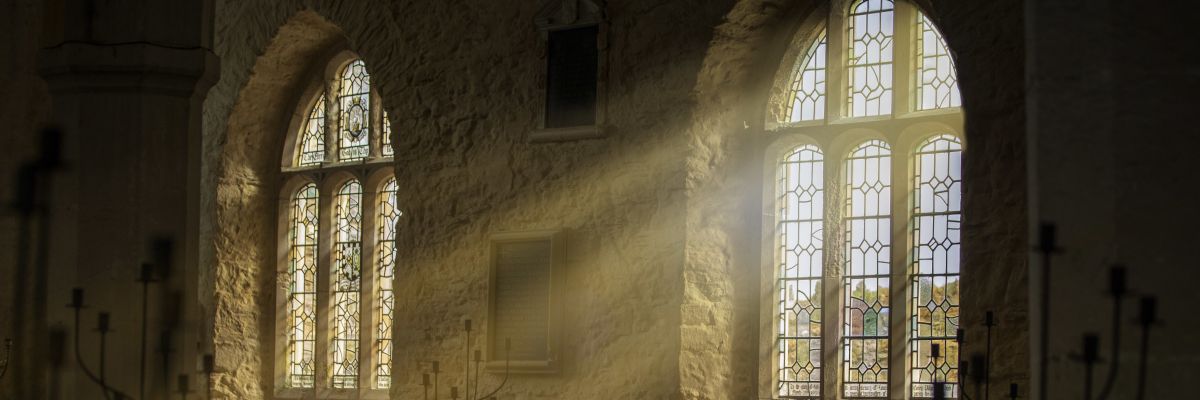
There’s one thing that theists and atheists can agree on: God’s existence is not so obvious that everyone necessarily knows it. For many, God’s failure to make his existence obvious, as compared to the existence of a friend or colleague, creates a “knowledge gap” that must be bridged.
Some atheists see this knowledge gap (also called an “epistemic” or “cognitive” gap) as a problem for theism, especially when it comes to honest inquirers. Of course, the problem isn’t new, and has in the past been considered the problem of divine hiddenness by many philosophers and theologians.
Nonbelievers think that if God existed, loved us, and desired a relationship with us, then surely he would exclude all possibility of doubt at least with regard to knowing that he exists. But since there are honest inquirers everywhere who doubt God’s existence, it must be that God doesn’t exist.
What should we make of this argument?
Well, for starters, the argument assumes that if God exists, he is somehow unloving or unjust for not bridging the knowledge gap for all honest inquirers. But we have to ask, “Does it belong to God’s all-good nature to bridge that gap, such that if the gap persists we have good reason to think God doesn’t exist?”
There are two arguments that we can give to show why the answer to this question is no.
The first starts with a key principle of knowledge that St. Thomas Aquinas lays out: “The knowledge of every knower is ruled according to its own nature” (Summa Theologiae I:12:4). This follows from another principle: action follows being (ST I:75:3). In other words, something acts according to its mode of being.
Now, as Aquinas points out, the human soul is a spiritual substance that is by its nature ordered to be joined to a body (ST I:55:2). As such, the powers of our souls have a degree of dependence on the body, including our intellectual powers. So our intellects achieve their perfection “from bodies, and through bodies”—otherwise, there would be no reason for our souls to be united to our bodies (ST I:55:2). It’s this line of thought that provides the rationale behind Aquinas’s teaching, “there’s no knowledge in the intellect that hasn’t first come through the senses” (De Veritate, q. 2 a. 3 arg. 19).
Aquinas contrasts this mode of knowledge with the angels, who don’t achieve the perfection of their minds through bodies because they’re utterly free from matter in their nature. Angels achieve their intellectual perfection in knowledge of things through a direct outpouring of knowledge received from God.
Aquinas’s view of how we know gives us a crucial insight relative to the problem of the knowledge gap concerning God’s existence: the knowledge gap is a natural consequence to our way of knowing as embodied souls.
Think about it. We have to gain knowledge through our senses. But God by nature is beyond what our senses can detect. Therefore, we can’t have direct knowledge that God exists via our natural mode of knowledge. In our natural mode of knowledge, we necessarily have to reason to God’s existence starting with our senses. And such a process gives only indirect knowledge, which is not the kind of knowledge that makes doubt impossible.
Now that we know the knowledge gap is something that’s natural to us as rational animals, it becomes clear why it’s not contrary to God’s goodness to not forcefully bridge this gap: God is not bound by his all-good nature to give what is not due to our human nature.
For God to directly bridge the knowledge gap and entirely preclude the possibility of doubt would be for him to give us something that is above our natures as humans. And since God is not bound to give us what is not due to our natures as humans, it follows that it’s not contrary to God’s love, justice, or goodness for him not to entirely preclude the possibility of doubt in his existence.
Okay, there’s a second way that we can respond to this objection from the knowledge gap: it’s unreasonable to interpret silence without sufficient information about the person who’s being silent.
Consider this scenario. Suppose you’re walking down the hallway at work, you see a co-worker who you have meaningful and fun conversations with every day during your coffee break. But on this particular day, he doesn’t greet you or even acknowledge you.
A series of questions arise: Did I do something to hurt his feelings? Does he all of sudden think I’m not worth being friends with? Or perhaps he’s just lost in thought and didn’t even notice me pass him by?
The point is that interpreting silence requires a lot of information about the person who is giving you the silent treatment—information that sometimes we just don’t have access to. In his book The Hiddenness of God, philosopher Michael Rea puts it this way:
Interpreting silence requires a lot of information about what sort of person you’re dealing with – about the person’s cultural background, sorts of social norms he or she recognizes and respects, about his or her views about what behaviors, both verbal or not, communicate to others, about his or her general style of interacting with other people, about what’s going on in his or her life, and so on.
So, if it’s this difficult to interpret the silence of an ordinary human person, how much more difficult is it to interpret the silence of an invisible, transcendent, infinite God?
It simply isn’t unreasonable to conclude that divine silence in and of itself indicates a lack of love or goodness on God’s part. Such a conclusion is based on unwarranted assumptions about the degree to which divine modes of revelation must resemble human modes of perception and understanding.
The gap of knowledge that exists for many atheists and agnostics is real. It’s not like they’re a bunch of immoral heathens who’ve snuffed out the light of reason. Indeed, many saints have even lamented God’s hiddenness at times. Believers can sympathize. But it simply doesn’t follow from this knowledge gap that atheism or agnosticism are the only rational options. Nonbelievers are going to have to find some other foundation to build on.



